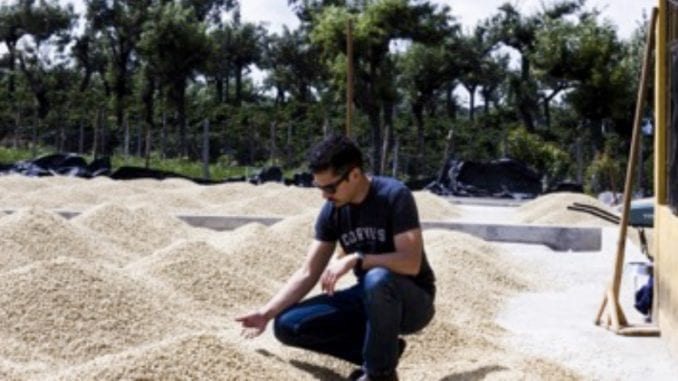
Phil Goodlaxson, owner of Corvus Coffee Roasters, talks philosophy, business, and direct trade.
BY JASON HUFFNAGLE
SPECIAL TO BARISTA MAGAZINE
Photos courtesy of Phil Goodlaxson
Phil Goodlaxson is owner of Denver-based Corvus Coffee Roasters. In this interview, he discusses business philosophy and his take on the status of direct trade within the coffee industry.
Jason Huffnagle: Thanks so much for taking the time to discuss your work with me, Phil. I’ve been to Corvus Coffee Roasters several times while visiting Denver, and I love the work you all do. Why don’t you start off by telling our readers how you got into coffee?
Phil Goodlaxson: I was interested first in starting a business that could have an impact on the world through daily operations and just running a good business. I come from a family of entrepreneurs and self-employed people, and went to business school in Illinois, assuming I would open some sort of company.
During college I isolated the things I wanted to do on a daily basis. I was looking for something sensory and––although I wasn’t much of a chef––I have always found I’ve had a pretty good sense of taste and smell, or at least an interest in developing my palate. I also wanted to do something that would allow me to travel, and I defined my interest in “craft” at the time as doing something in which I could have variety. Whether that be learning, or striving to improve myself and my product, I knew I wanted to do something that allowed me to continually be challenged and not bored.
I started home-roasting coffee after getting hooked on finding better and better coffee, and it became a hobby that just spiraled out of control. When I visited the first location of Intelligentsia Coffee in Chicago, I realized that there might be potential for a real business in the industry, and over time started to see that it really checked all those boxes for me.
I got a “real job” with Dell Computers out of college, and that lasted for just a year before I realized I would rather do anything else than sit in a cubicle for a minute longer. I got a lot of criticism for quitting what was considered a great job to be a barista, but realized that I was more afraid of waking up at the age of 70 and wondering what would have happened if I had followed my passion than waking up at 70 and remembering trying and failing.
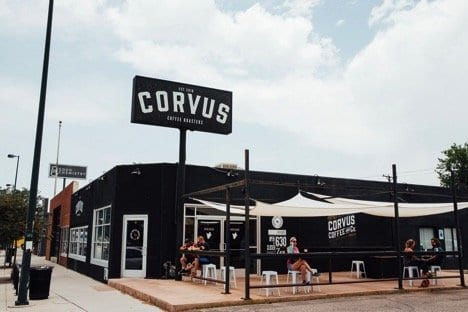
That’s incredible. You went through quite a process discovering your passion for coffee. What made you decide you wanted to open your own shop?
Probably the naive idea that I could do it my own way better than I could find at the time.
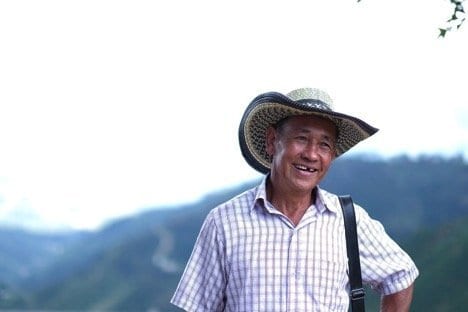
I think we have all been there. What does a typical day look like for you as the owner of Corvus? And what do you think makes Corvus unique? Denver is of course an incredible place to be right now, especially with all the growth the city has seen.
A typical day for me is very different depending on the day. I’m still trying to figure out the role of owner at a growing company. I’m trying to be better at managing by walking around, which is difficult now that we have three locations, including our roastery. It requires a lot of general leadership combined with my direct responsibilities of fiscal management and planning, business development, marketing, and green coffee purchasing.
I would say, at Corvus, our unique focus is in how we source coffee. All of our coffees, with maybe one or two rare exceptions, are bought directly from producers that I know and work with every year. I have invested a lot of time and money in traveling to source coffee and build these relationships, and we visit every producer pretty much every year during harvest. We also develop new relationships this way, and this is our primary method of growth––sourcing first, and then sharing coffee that is tied to quality-focused sustainability projects with our customers.
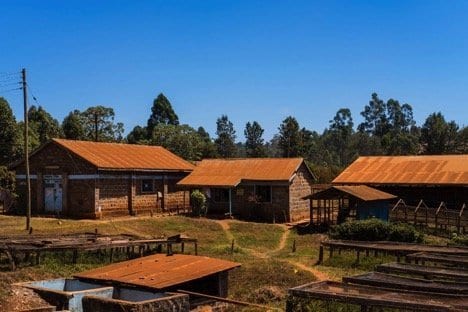
Could you tell me a bit about the coffee scene in Denver?
It’s great! The foundation for the average consumer understanding of the value of craft was laid early by a vibrant beer scene. The idea of paying more for a better-quality beverage is an easy one to take from your favorite brewery and apply to a local coffee roaster.
Tune in tomorrow for part two of this interview, where we keep talking to Phil about direct trade and sourcing coffee!
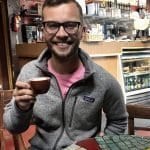
ABOUT THE AUTHOR
Jason Huffnagle is a freelance writer for Barista Magazine who has worked in coffee as a barista for six years. Having left his “adult job” in the U.S. Senate, the Alaska native spent several months traveling throughout Europe. You can read about his coffee-fueled travels and other exploits by following him @jasonhuffnagle on Twitter.

